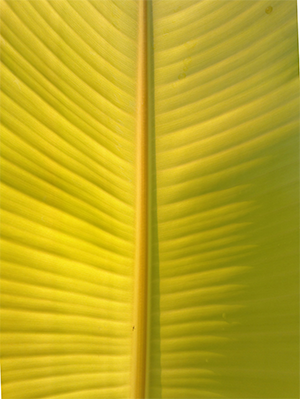 Many antagonistic meat-eaters love to jeer at vegans and vegetarians and say lines such as “what about all the plants you’re murdering, they feel pain too”. On one side of the coin, it’s a bit of a cop out because they don’t want to think about the signficant pain and suffering they’re causing animals; on the other side of the coin they have got half of a reasonable argument.
Many antagonistic meat-eaters love to jeer at vegans and vegetarians and say lines such as “what about all the plants you’re murdering, they feel pain too”. On one side of the coin, it’s a bit of a cop out because they don’t want to think about the signficant pain and suffering they’re causing animals; on the other side of the coin they have got half of a reasonable argument.
Recent discoveries into the sentience level of plants1 has raised concerns over whether they’re able to feel pain and discomfort. This of course raises a difficult conundrum – is it therefore just as ethically or morally wrong to eat plants as it is to eat animals and their by-products?
Firstly, it is about the degree of pain felt. It is well documented that animals intensely feel pain2. Most of us have experienced seeing an animal in pain and distress. In animals nociception typically involves the transmission of a signal to the spinal cord and brain along a chain of nerve fibers. Plants lack a central nervous system and a brain, so don’t feel pain in a comparable way to animals.
Secondly, eating animals kills more plants. The plants required to sustain agriculture and pastoral farming is immense. Not only is forested land cleared in order to make way for pastures and facilities; to feed livestock an enormous amount of plant stock is required. This can be grass, corn, alfalfa and soy beans – and currently 80-90% of all of this grown globally is used for feeding livestock3. If meat-eaters are genuinely concerned about the possible pain experienced by plants, then surely minimising the amount of plants that are killed would be logical.
If these plants were instead grown for the purpose of feeding humans, it would cut down the amount needed by a huge margin, and therefore spare a large amount of plant suffering. When taking into account the amount of deforestation that occurs for the purpose of creating farmland, by switching from a western meat and dairy-based diet to a vegan one, you save as many as 100 trees every year4. 60-70 percent of deforestation in the Amazon results from cattle ranches5.
For those meat eaters genuinely interested in the well-being of plants (rather than just making the argument in order to “stir the pot” with veg people), it’s clear which one is the kinder choice.
Furthermore, the food we get from plants often doesn’t actually harm the plant itself. Fruits such as apples, plums, pears and bananas are naturally occurring, and will drop from the plant. They’re simply a by-product of its reproductive system. Similarly, many types of vegetables do not require killing the plant in order to be harvested, such as corn, beans, squash, tomatoes and peppers.
Sources:
1. In Defense Of Animals
2. Wikipedia: Pain in animals
3. Cornell Chronicle: US Could Feed 800 Million People With Grain Used For Livestock
4. 10 Ways Vegetarianism Can Save The Planet
5. Deforestation in the Amazon
3 Responses to “But Plants Feel Pain Too”
Agree or disagree with this post? Leave a comment below.
Your email address will not be published.
Enter Code: *
Do not include website links or HTML in the reviews, they will be removed.


May 24, 2015
Simple! If it flinches, cries out, tries to run away, then don’t hurt it.
November 10, 2015
I don’t think there is any doubt that plants can feel pain. They are living beings just like every species on this planet. You cannot argue the comparability of pain from one being to another because we as people could not possibly understand what it is like to be a plant. However as natural herbivores plants are a part of our diet and the food chain. As mentioned in the article a lot less plants would be needed to sustain a plant based diet as opposed to a meat based diet, and many plants produce food without being harmed. Eating a plant based diet is the first step to a compassionate world. Maybe appreciating and being thankful towards the living beings that are sacrificed for our food (plants not animals) is another step. Hopefully one day all our food will be made in an ethical way that does not require commercialism, pesticides and mass production. Wouldn’t it be nice if we could all grow our own food or at least head to the community garden instead of the supermarket.
October 21, 2020
Thank You for writing this. I had been pondering it for some time and needed some help to make my mind up on a good answer when asked. 🙂